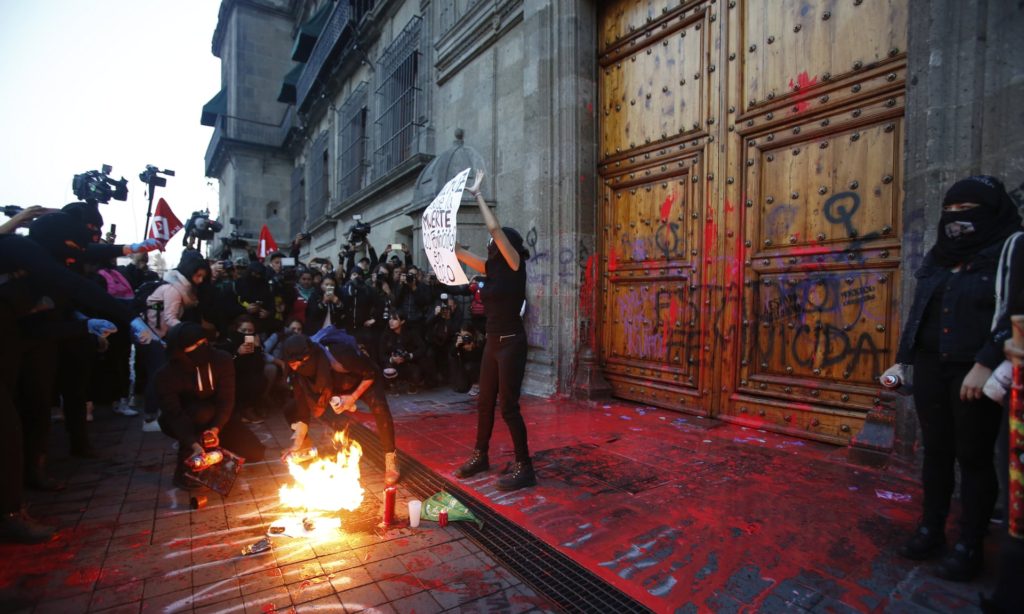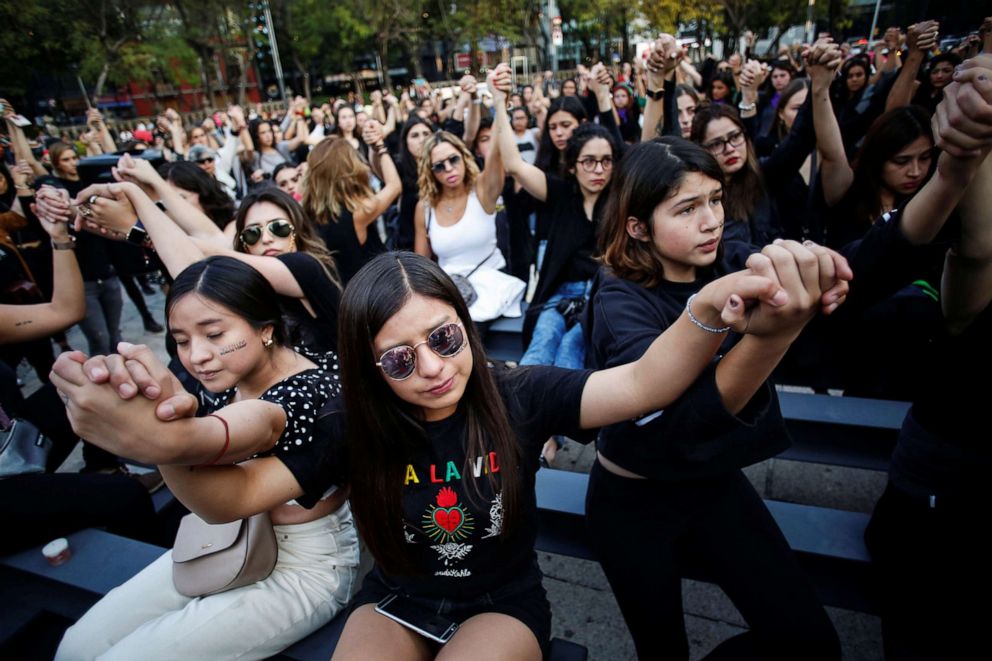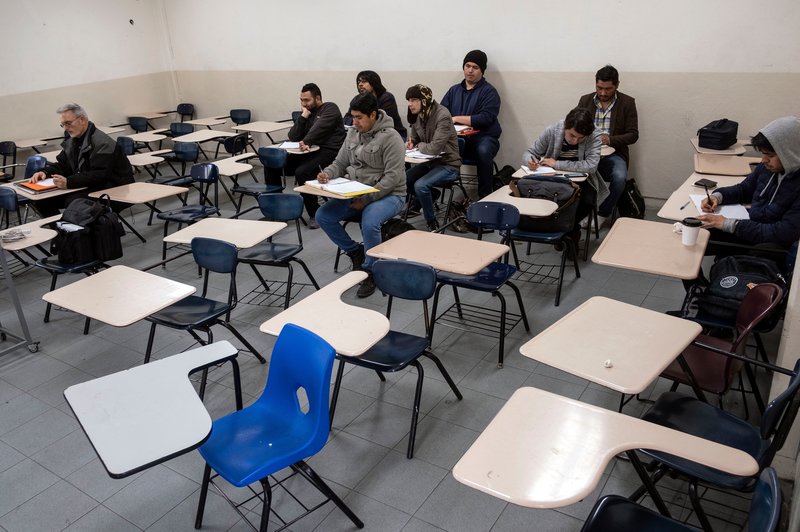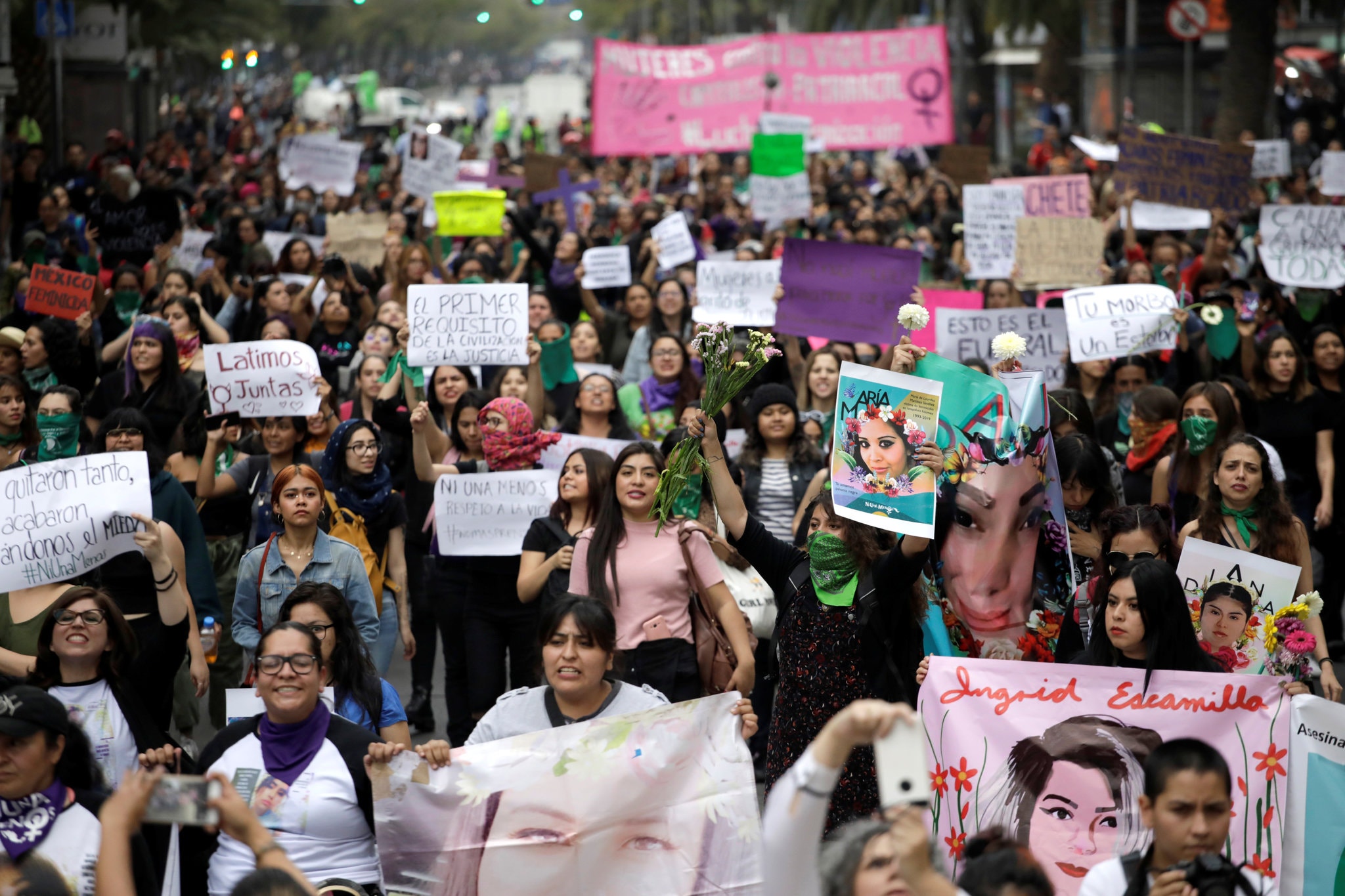Female genocides have taken over Mexico. The president’s attitude? “I don’t care.”
Nearly ten women are killed every day in Mexico. This might sound like something straight from a horror movie, but this is the harsh reality that women in Mexico have to face every day. “Femicides,” as defined by Merriam-Webster, is “the gender-based murder of a woman or girl by a man.” As of 14 March 2020, more than 386 women have been killed since the 1st of January. In 2019, there were nearly 4,000 cases of femicides. The number of femicides have increased 137% over the past five years, which is four times more than the average homicide rate, said Mexico’s attorney general. Yet the worst part about this issue is that Andrés Manuel López Obrador (AMLO), the president of Mexico, is simply not caring and taking any actions to help the frightened women of Mexico.

Protestors putting up a fight outside the presidential palace Photo courtesy of Ginnette Riquelme/AP

A riot being started by justice-craving women outside the national palace in Mexico City Photo courtesy of Alfredo Estrella/AFP, Getty Images
February’s two gruesome incidents of femicides put out a swarm of anger and discomfort among many activists in Mexico City. On 9 February, 2020, 25-year-old Ingrid Escamilla was murdered by her boyfriend. Her corpse was skinned and her body disemboweled. Local tabloids then published photos of Escamilla’s corpse on the front page of several newspapers, gaining fury from the public. Only a few days later, seven-year-old Fátima Cecilia Aldrighett was murdered after being abducted from school and tortured, with her body being found in a plastic bag four days later. On 8 February, Marbella Valdez Villarreal’s body was found in a rubbish dump. As people mourned over the death of Villarreal, her suspected killer was found placing flowers on her coffin. These cases of femicides only account for the tiny percentage of women being murdered daily in Mexico.

Women gather at the Angel de la Independencia monument in Mexico City in unity Photo courtesy of Gustavo Graf Maldonado/Reuters

A classroom with males only at Universidad Autonoma de Baja California during the 24 hour women’s strike
Photo courtesy of Guillermo Arias/AFP via Getty Images
Fueled by the ongoing femicides countless of innocent women have to endure daily, several protests have broken out on the streets of Mexico, all in hopes of getting Amlo to respond. On 14 February, dozens of women activists protested against the violence among women outside the presidential palace by splashing the doors with blood-red paint and graffitiing the words, “They are killing us” over the walls. Just a day after International Women’s Day on March 8, women who have had enough of Amlo taking zero actions took part in the “A Day Without Us” movement. On this 24-hour strike, countless women stayed home from work, school, and social functions. Trains, busses, classrooms, and workplaces that would usually be full of women was much noticeably quieter. With women making up 40% of Mexico’s workforce, this one-day strike costed the economy of Mexico $1.37 billion, according to Concanaco Servytur, a large national business group.

A photograph of President Amlo Photo courtesy of Henry Romero/Reuters
When Amlo was elected as president in 2019, many women hoped that this new president would take actions to stop the femicides in Mexico. However, much to their dismay, things are only getting worse. María Salguero, creator of the National Map of Femicides in Mexico, is a female who feel exasperation towards Amlo. “I feel betrayed, because I was one of those who voted for him…We trusted that things could be different – but now we are seeing that this is just more of the same,” said Salguero. At several press conferences, Amlo has been confronted about the critical issue of femicides more times than it should be necessary for him to take actions, but there still have not been any signs of hope. When asked if he would take new strategies of addressing the issue, Amlo repeatedly said, “No – on the contrary, we are going to reinforce the same strategy of looking at the causes of violence.” Once, Amlo said that he was not going to give up his “lifelong beliefs” for the sake of femicide protests. He insists on continuing the struggles to achieve a material and spiritual change, as if the daily murders were not big enough of a justification of change. In February, when responding to a question about eliminating the concept of femicides from the criminal code, Amlo claimed that the question interrupted his plans of talking about raffling off the presidential airplane. “I don’t want femicides to overshadow the lottery,” said Amlo. Even worse, Amlo answers questions about femicides by blaming the breakdown of families and the neoliberal systems from the past decades.
From hundreds to thousands of femicides every year to Amlo’s unreliable solutions to this issue, a whole lot more needs to be done in order to ensure the wellbeing of women in Mexico. The killing of another person based on their gender is morally unjust. If Amlo continues to keep up his attitude of being unbothered by this issue, it is hard to say what the future of women in Mexico would look like.
Featured Image — Thousands of women protest against femicides in Mexico City Courtesy of Andres Martinez Casares/Reuters
By Sara Tee

